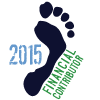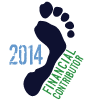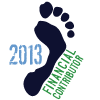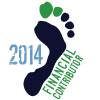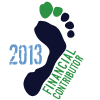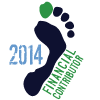Sounds like yesterday was the day of the many buffets. We ate at noon, and I wasn't hungry again until 8 this morning. Burp!Stuffed myself at a Chinese buffet for lunch. First heavy lunch I've had in a long, long time.
You are using an out of date browser. It may not display this or other websites correctly.
You should upgrade or use an alternative browser.
You should upgrade or use an alternative browser.
Mileage Reporting 48th Week of 2012
- Thread starter Sid
- Start date
My approach can probably be summed up in one word: moderation. Very gradual, moderate changes in routine, whatever the reason. If I am fighting a funny twinge or have had down time due to a flesh wound, I come back slowly, taking time to see how I feel. I think this is partly the idea about taking days to rest between each run. I am never fully aware of how my body has handled a run until two days later. The healing from the stress of increased effort makes sense to me, too, based on what I know of physiology. I know it's not always exact science deciding if a twinge means the body should rest, but I tend to err on the side of rest.Good to hear. I was curious when you mentioned doing tempo runs a while back, because I haven't heard of too many other people around her doing those. But you run at a good pace and manage to stay injury-free, which I take as a very good recommendation for this approach.
I was just having a look at the book now. Funny, he prescribes exactly the program I've been trying to implement for the last month or two: three runs a week, one day track intervals, one day tempo run, and one day long and steady. Man, it's great to get this confirmation, because this mix just feels so right for me. The moment I try four days a week, last week, what happens?: ITBS!!! I just need to merge my proposed skips and backwards running into my track day.
Still for the next week or two, I think I may just try intervals, 440 to one mile, to make sure I can stretch and massage a lot throughout the workout, until I've shaken the ITBS once and for all. Does that make sense?
That's another reason for having the multiple ways of exercising. Although I do take complete days of rest about once a week (or else I just fall into a crumpled heap), cycling through the way the body is exerting itself lets something always be resting. My husband, who has run successfully and impressively for many years, has cautioned me against stretching very much during a work out. He says it can lead to injury. Something about when the body is all warmed up, it can be easy stretch away your signals, then accidentally try harder than you should. I really don't stretch much worth mentioning now, but I do warm up my legs and give them a good massage several times a week. I noticed better recuperation from my runs when I started doing this.
I had trouble with ITBS before I began barefoot running. It was keeping me from running. I think part of what helps me avoid it now is thinking about letting my legs and hips relax and be loose. Maybe that's easier for my gender, but anytime the body is kept stiff when trying to move, things tend to go "twang!"
5.65 miles through the jungles of Winnipeg, MB. Saw a car hood close up tonight as it slid through a nice big stop sign and came to a nice easy stop right in front of me. I was so impressed I decided the hood needed a nice imprint of my hand, so I gave it one.
Yikes -5.65 miles through the jungles of Winnipeg, MB. Saw a car hood close up tonight as it slid through a nice big stop sign and came to a nice easy stop right in front of me. I was so impressed I decided the hood needed a nice imprint of my hand, so I gave it one.
Yup, it made my night and had the heart really racing, kind of shot the rest of the run all to poop though.
NickW
Guest
Hope you didn't have to clean out your drawers too...Yup, it made my night and had the heart really racing, kind of shot the rest of the run all to poop though.
Completely agree with the first paragraph. I got in trouble when I tried to jump mileage once in August, and again two weeks ago, when, post-MCL rehab, I tried to get back to the mileage I had built up gradually, March to September. I think for me it's mostly been a process of accepting that I'm older now and can't just will my body to do stuff anymore. But I think also I had failed to appreciate that running is a different animal from, say, cycling, and you just can't jump mileage without consequences. It's too high-impact. Even young, skinny, serious runners often report problems when they jump mileage.My approach can probably be summed up in one word: moderation. Very gradual, moderate changes in routine, whatever the reason. If I am fighting a funny twinge or have had down time due to a flesh wound, I come back slowly, taking time to see how I feel. I think this is partly the idea about taking days to rest between each run. I am never fully aware of how my body has handled a run until two days later. The healing from the stress of increased effort makes sense to me, too, based on what I know of physiology. I know it's not always exact science deciding if a twinge means the body should rest, but I tend to err on the side of rest.
That's another reason for having the multiple ways of exercising. Although I do take complete days of rest about once a week (or else I just fall into a crumpled heap), cycling through the way the body is exerting itself lets something always be resting. My husband, who has run successfully and impressively for many years, has cautioned me against stretching very much during a work out. He says it can lead to injury. Something about when the body is all warmed up, it can be easy stretch away your signals, then accidentally try harder than you should. I really don't stretch much worth mentioning now, but I do warm up my legs and give them a good massage several times a week. I noticed better recuperation from my runs when I started doing this. And now I've signed for a half-marathon next August. Doh!
I had trouble with ITBS before I began barefoot running. It was keeping me from running. I think part of what helps me avoid it now is thinking about letting my legs and hips relax and be loose. Maybe that's easier for my gender, but anytime the body is kept stiff when trying to move, things tend to go "twang!"
And in Chicago, the first time I adopted an exercise routine after about four years of settled life, after a previous lifestyle of adventure and high activity, I found a natural rhythm of alternating days of strength training with running days. The one time I veer from this rhythm, last week, I get ITBS. Lesson learned (hopefully). It was nice to have that book endorse the three-times-a-week approach. That way, for both running and weights, the muscles have 72 hours to recover once a week. On the seventh day, I'll go back to my original plan of doing plyometrics stuff, some calf raises and leg extensions and curls, jump some rope, and a bunch of stretching and mobility stuff.
Perhaps part of the problem too has been giving up the cross-training on my rower for the last several months. I used to do that 30 minutes as part of my strength training days, but once I got my running up to an hour or more, I decided I didn't need the extra aerobic work, and wanted to expand my ST routine. Maybe I should try to get back to some rowing once or twice a week.
I don't really agree about the stretching part. I think not stretching enough, along with not realizing the importance of self-massage, has been my main problem since trying to get back in shape since 2010, when I returned Stateside. I've always been flexible, especially for a guy, and used to be able to do the splits. When I got ITBS last Tuesday, I stuck my leg up about chest high and then dug in my fingers up and down along the leg muscles and bang, the ITBS disappeared. 15 minutes earlier I could barely walk, I was limping so bad in pain. But I do believe this can be an individual thing. I think massaging is probably a universal good, but perhaps stretching isn't for everyone, I dunno. I just know it works for me.
There are also runners like Scedastic and DNEChris who tolerate high mileage and daily running no problem, so it's really a matter of finding what works for each one of us, at any given stage of our fitness development, right? I think both Nick and I have discovered we're more less-n-faster type runners, whereas others are more-n-steady type runners. The problem for me was that the latter seems to be the dominant paradigm in the recreational running world, and it was easy to become unduly influenced by it once I began participating in online interactions with other runners. Ever since last spring I've sensed that I needed to run faster first, but it's taken a long time to finally give myself complete license to adopt this approach.
Another 7.5mi minshod. This is starting to feel like a comfortable distance. Maybe just breaking through some mental barriers. Anyway, the holiday weight is coming off. Back is starting to feel better. Might consider going back to the weights again next week. We'll see!
There are also runners like Scedastic and DNEChris who tolerate high mileage and daily running no problem.
Happysongbird's moderate approach works for me!
I moderate either the pace or the distance and it all seems to flow together. As I've said before, I have to get to work anyway and running is the most fun way to do it! It probably took me 18 - 20 months to reach my current daily mileage from the start of this running adventure 4 years ago.
Now I just try and hone my technique by letting nature take its course!
It's great that your weekly mileage is moderate for you, but I wonder if some of us would ever be capable of that kind of moderation no matter how extreme our effort!Happysongbird's moderate approach works for me!
I moderate either the pace or the distance and it all seems to flow together. As I've said before, I have to get to work anyway and running is the most fun way to do it! It probably took me 18 - 20 months to reach my current daily mileage from the start of this running adventure 4 years ago.
Now I just try and hone my technique by letting nature take its course!
More seriously, I didn't mean in any way to draw comparisons of good and bad. I was just noting that some approaches may not work for some people, at least some of the time. But as you pointed out, it took you a while to build up to your present mileage, so I can't discount the possibility of me running with greater frequency or mileage altogether. Given enough time and patience, it could be possible, who knows? But for the short to medium term, I think trying a less frequency, lower mileage approach with (relatively) faster pacing makes sense for me. And that book is helpful for having theorized this approach, and a lot of people have had success with it.
I don't really agree about the stretching part. I think not stretching enough, along with not realizing the importance of self-massage, has been my main problem since trying to get back in shape since 2010, when I returned Stateside. I've always been flexible, especially for a guy, and used to be able to do the splits. When I got ITBS last Tuesday, I stuck my leg up about chest high and then dug in my fingers up and down along the leg muscles and bang, the ITBS disappeared. 15 minutes earlier I could barely walk, I was limping so bad in pain. But I do believe this can be an individual thing. I think massaging is probably a universal good, but perhaps stretching isn't for everyone, I dunno. I just know it works for me.
There are also runners like Scedastic and DNEChris who tolerate high mileage and daily running no problem, so it's really a matter of finding what works for each one of us, at any given stage of our fitness development, right? I think both Nick and I have discovered we're more less-n-faster type runners, whereas others are more-n-steady type runners. The problem for me was that the latter seems to be the dominant paradigm in the recreational running world, and it was easy to become unduly influenced by it once I began participating in online interactions with other runners. Ever since last spring I've sensed that I needed to run faster first, but it's taken a long time to finally give myself complete license to adopt this approach.
Certainly every body is different. And it's your body you have to get to know. Can't argue with that. It seems like what you are calling stretching to deal with the ITBS is more like what I would call dealing with cramp/tightening response to over use by holding it in a position that doesn't hurt, then massaging it. If that was happening to me as strongly as you describe, I would probably back off of what I was doing or take some time off. But that's me.
Having watched close family members and friends run daily over the years, as well as observe the general running population, I don't think it is easily said that anyone tolerates high mileage and daily running with no problem. It may seem like it for a while, but the body always has a way of "taking a break." We don't hear much from "runners" when they are not running due to injury (well, except here, of course
I too would back off or take time off if it weren't getting better. Here's the sequence of runs thus far:Certainly every body is different. And it's your body you have to get to know. Can't argue with that. It seems like what you are calling stretching to deal with the ITBS is more like what I would call dealing with cramp/tightening response to over use by holding it in a position that doesn't hurt, then massaging it. If that was happening to me as strongly as you describe, I would probably back off of what I was doing or take some time off. But that's me.
Saturday 11/17: Ran 9.4 miles. I felt tired on the last few miles, but no pain or ITBS.
Sunday 11/18: Felt mild ITBS after a little over a mile while going up a hill. Ran three miles total with mild discomfort, stopping to stretch a bit several times without relief.
Tuesday 11/20: Stop-me-in-my-tracks ITBS at the three-mile mark. But fifteen minutes later, after intensively stretching out the hammies and calves (leg up chest-high) and massaging the upper leg muscles for a good 10 minutes, it was gone. No pain thereafter whatsoever.
Friday 11/23: ran close to 3.5 miles, no problem.
Sunday 11/25: ran close to four miles, with mild ITBS at the very end. Walked the last half mile home pain-free after stretching and massaging.
So we'll see what happens today. I'm planning on trying three or four one-mile intervals down at the track, with stretching/massaging breaks in between. If I experience ITBS, I'll back off. If I don't have any trouble, then on my next run I may try four or five one-mile intervals, or perhaps stay at four and work on pace. In any case, I appreciate your input, and completely agree that it would be pointless to try to push through this if it weren't getting better, both in terms of distance run, and lessening pain.
And I have been stretching quite a bit. I know stretching is controversial right now, and so I would never recommend it for everyone, but a lot of therapists and running experts still think it's a good idea. My sense of my own body is that some of my set-backs might never had occurred if I had been more vigilante about staying limber.
When discussing this stuff, I don't mean for it to take on a competitive tone, just think it's useful to share information, what has worked for us, our reasons for doing one thing and not another, and then let others make of it what they will. I know I've learned a lot reading about other people's approaches. If I've been influenced to try something that didn't work out for me, I take complete responsibility for it. I didn't mean to imply that the high mileage folks are wrong or that it's their fault I tried to push my mileage too quickly. When I give these extensive reports of my experience, I'm mostly looking for feedback I can learn from. Learning that you've also found Pierce, Murr, & Moss's approach helpful was good to know, for example. And learning that Nick has also had trouble with the high mileage, slower pacing approach has been extremely valuable in reaffirming my own sense of how I should be approaching this. And so on.
I dunno, we'd have to ask scedastic and Chris, but it seems like they do pretty well. Seems like some people are OK with high(er) mileage and/or high(er) frequency. More power to them. A brother of a childhood friend has run at least one mile every day for over 40 years. He even ran after gall bladder surgery! So those folks do exist, they're just not that commonHaving watched close family members and friends run daily over the years, as well as observe the general running population, I don't think it is easily said that anyone tolerates high mileage and daily running with no problem. It may seem like it for a while, but the body always has a way of "taking a break." We don't hear much from "runners" when they are not running due to injury (well, except here, of course).
I don't believe reports where people say they've done something every day for 40 years. Just sayin'.A brother of a childhood friend has run at least one mile every day for over 40 years. He even ran after gall bladder surgery! .
I don't believe reports where people say they've done something every day for 40 years. Just sayin'.
But water can turn into wine?
http://www.100klifetimemiles.com/2011/10/steve-deboer-has-run-135800-miles-june.html
http://runeveryday.com/lists/misc/USRSAhonorsSteveDeBoer.htm
http://www.runeveryday.com/
Steve averages 9-10 miles a day, similar to our Chris.
Note I had the gall bladder surgery wrong, it was a kidney stone.
When my friend Bob DeBoer mentioned to his brother Steve that I was taking up barefoot running in 2010, he thought it was ridiculous. As if averaging 9-10 miles running everyday for 40 years was perfectly normal!
Kind of feel like you are baiting me here.... and my response would not be taken seriously. Sorry. I think I'll sign off of the discussion for now.But water can turn to wine?:
http://www.100klifetimemiles.com/2011/10/steve-deboer-has-run-135800-miles-june.html
http://runeveryday.com/lists/misc/USRSAhonorsSteveDeBoer.htm
http://www.runeveryday.com/
Note I had the gall bladder surgery wrong, it was a kidney stone.
Just teasing Laura. If I didn't feel like I knew you, I wouldn't feel free to take such liberties . . . hope I didn't offend.Kind of feel like you are baiting me here.... and my response would not be taken seriously. Sorry. I think I'll sign off of the discussion for now.
Not offended. Always perfectly happy to discuss what I confidently believe, if I think someone really wants to hear, but this didn't seem quite right. Will sign in later with an exercise report. Toodles.Just teasing Laura. If I didn't feel like I knew you, I wouldn't feel free to take such liberties . . . hope I didn't offend.
BUT WHY?A brother of a childhood friend has run at least one mile every day for over 40 years. He even ran after gall bladder surgery!
At that point it becomes a bit too OCD for me, so then running is then a matter of saying you do it every day than, well, a matter of running.
You were right, I wasn't trying to bait you into a serious discussion about your faith, just giving you trouble for doubting my friend's accomplishment / OCD (thanks Scedastic). Playful teasing was the only intentNot offended. Always perfectly happy to discuss what I confidently believe, if I think someone really wants to hear, but this didn't seem quite right. Will sign in later with an exercise report. Toodles.




